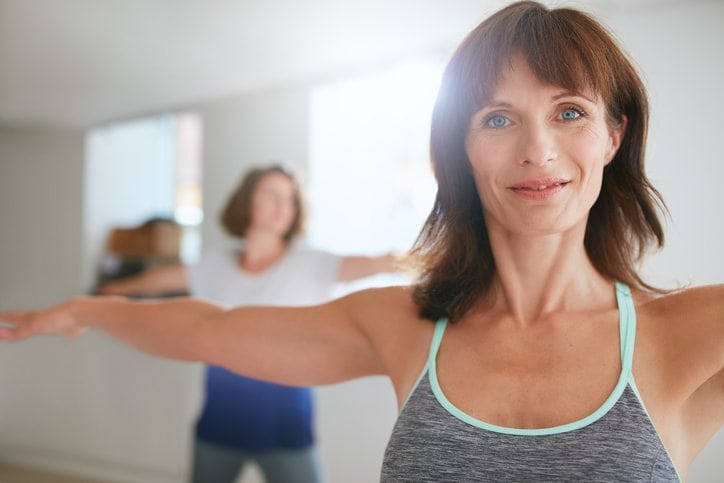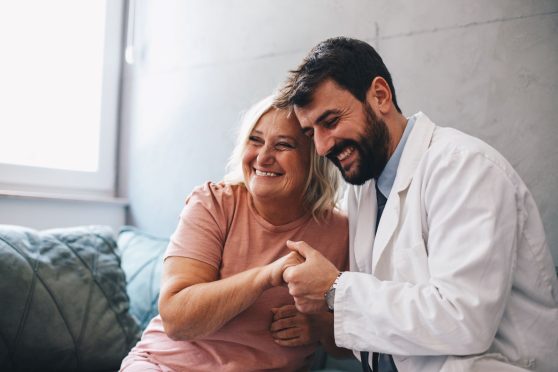By Michelle Voegtle
Licensed Professional Counselor
Clinical Program Manager
Rushford
The stress and isolation of the COVID-19 pandemic drove many of us to new habits and hobbies. For some, it was a newfound love for biking through trails in their neighborhoods, while others found a sense of calm in baking a loaf of bread. Others turned to one of my favorite activities, yoga, a practice that has grown in popularity due to its many physical and mental benefits.
But did you know that yoga can help those in recovery from substance use disorders?
Yoga, along with other holistic treatments such as creative therapies, nutrition education, mindfulness training and meditation, is integrated into every program at Rushford at Cheshire.
That’s because addiction is about numbing, escaping and avoiding. Yoga teaches clients to tune into their bodies and tune out the negative thoughts. By tuning into your body, you can learn what it is trying to teach you and realize that there is no need to escape. The mind and body work together toward recovery instead of against one another.
Yoga also teaches the skills of mindfulness and breathing, which together can change the trajectory of recovery. At the core of addiction is the feeling of not being connected, not only with others but also with oneself. For many struggling with addiction, feeling emotions is uncomfortable and anywhere is better than being stuck with the feelings of anxiety or obsessive thoughts and fears. Yoga teaches people to be present in their bodies and stay with uncomfortable feelings, eventually learning that they will pass.
Through yoga poses, we create a space where we can work with clients to face negative thoughts and feelings and work through them when they crop up. We are implementing what is learned through individual and group therapy and applying it to yoga which clients can continue on their own at home. Our yoga classes are taught by recovery support specialists who have personal experience with addiction and add a layer of peer support to treatment.
Yoga is just one aspect of a client’s treatment plan. Medication-assisted therapy helps people get into recovery from opioids, alcohol or other substances, and allows people to stay connected to their families, work, and be in the community. And it is important to recognize that addiction is often accompanied by mental health issues, such as depression, anxiety or trauma.
Treating the whole person, both mind and body, is essential for recovery.
Rushford at Cheshire’s newly expanded location at 680 South Main Street is part of Hartford HealthCare’s Behavioral Health Network. It offers partial hospitalization and intensive outpatient treatment, traditional outpatient group therapy for a variety of mental health and substance use issues, with evening programs available for working professionals. All patients are supported by a Recovery Support Specialist with after-hours support through a mobile app. Call 1.877.577.3233 to schedule an appointment.


